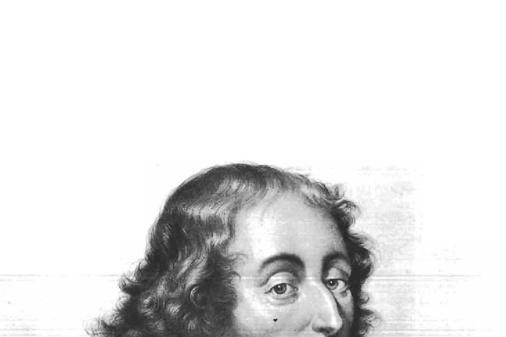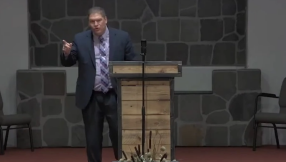
Today is the birthday of Blaise Pascal, a 17<sup>th century French mathematician, inventor and Catholic theologian.
Born in 1623, Pascal was a child prodigy in science and mathematics. He began inventing the calculator as a teenager, and went on to make landmark contributions to geometry, physics and probability theory.
Just as enduring are Pascal's contributions to theology and philosophy. He identified with a Catholic movement called Jansenism that had affinities with Calvinist thinking, and after a dramatic religious experience spent some time as an ascetic.
He had sought to write an apologetic for the Christian faith – but it was never finished. Instead, his myriad reflections on God and human existence would be published as The Pensées after his death.
One of Pascal's most famous ideas is known as 'Pascal's Wager'. Put simply, Pascal posited that since God either exists or does not, it would be infinitely more worthwhile to bet that he does.
'Belief is a wise wager,' he said. 'Granted that faith cannot be proved, what harm will come to you if you gamble on its truth and it proves false? If you gain, you gain all; if you lose, you lose nothing. Wager, then, without hesitation, that He exists.'
Pascal died young at just 39 on 19 August 1662. Nonetheless, his diverse intellectual legacy – and inspiration to the Church – lives on. Here are nine quotes to remember him by.
1. The heart has its reasons which reason knows not.
2. All of humanity's problems stem from man's inability to sit quietly in a room alone.
3. Truth is so obscure in these times, and falsehood so established, that, unless we love the truth, we cannot know it.
4. All men seek happiness. This is without exception. Whatever different means they employ, they all tend to this end. The cause of some going to war, and of others avoiding it, is the same desire in both, attended with different views. The will never takes the least step but to this object. This is the motive of every action of every man, even of those who hang themselves.
5. Love knows no limit to its endurance, no end to its trust, no fading of its hope; it can outlast anything. Love still stands when all else has fallen.
6. Since we cannot know all that there is to be known about anything, we ought to know a little about everything.
7. People are usually more convinced by reasons they discovered themselves than by those found by others.
8. Happiness is neither without us nor within us. It is in God, both without us and within us.
9. Jesus is the God whom we can approach without pride and before whom we can humble ourselves without despair.













